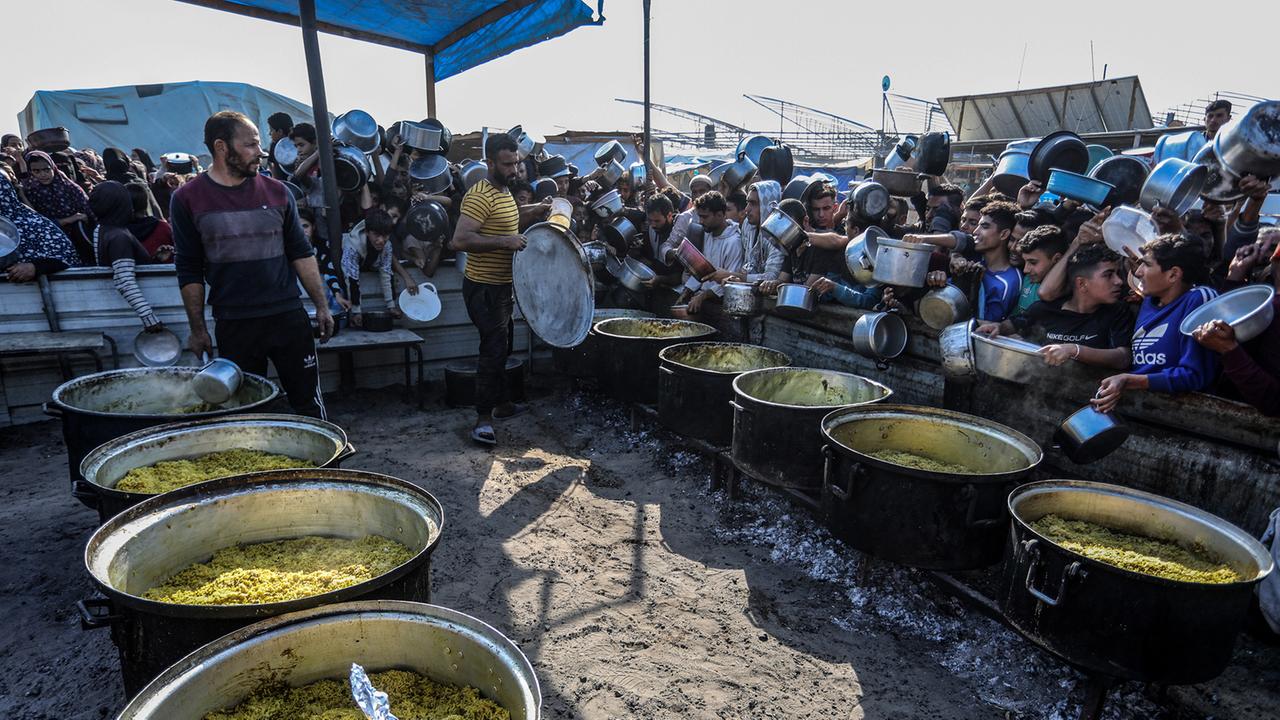More than 300 million people will need life-saving support in the coming year. This is what the UN emergency relief agency OCHA says. But it is already clear that there will be no help for many.
According to estimates by the United Nations, around 305 million people will be dependent on humanitarian aid in the coming year. For example in Syria, Gaza, Ukraine, Sudan, Afghanistan and Yemen. “The world is on fire,” said the new UN emergency aid coordinator Tom Fletcher in Geneva. And in a “burning world,” the most vulnerable paid the highest price: children, women, people with disabilities, the poor. It is a “perfect storm” caused by war, climate crisis and social inequality.
There is not enough money for an emergency aid plan
With its global appeal for aid, the United Nations wants to raise $47 billion – money that will be used to finance life-saving aid such as food and medicine for around 190 million people.
According to the new UN emergency aid plan, over a third of the people in need will not receive any support. “It would be easier for me to sit here and say that we have to reach all 305 million people in need,” said the UN emergency aid chief. “We want this, and I wish we could.” If it was a successful financing year, more would be done. “But unfortunately I have to be cynical and realistic about the chances of that happening. That leads to really tough decisions. But they are based on facts,” said Fletcher.
UN emergency aid coordinator Tom Fletcher is sounding the alarm
Help is prioritized
You had to prioritize. It was analyzed where the money could be used most sensibly and effectively. But even the $47 billion now demanded – a good two billion less than for 2024 – is unlikely to come together. The aid programs of the UN and its partner organizations are chronically underfunded. So far this year, not even half of the required money has been paid.
“We must advocate for greater global compassion,” Fletcher said. The message goes to traditional donor countries such as Great Britain, Germany and the USA, which wanted to reduce their contributions. “We have to show them that concrete help is the most effective method of overcoming crises.”
Cuts due to too little money
The consequences of underfunding are serious. This year, food aid in Syria had to be cut by 80 percent. The famine in Chad worsened because there wasn't enough money. In addition, systematic violations of international humanitarian law in many armed conflicts are the greatest obstacle to life-saving assistance.
2024 was the deadliest year yet for aid workers. Never before have so many humanitarian workers been killed in action. In summary, Fletcher describes the situation as follows: “The humanitarian system is overstretched, underfunded and literally under attack.”





